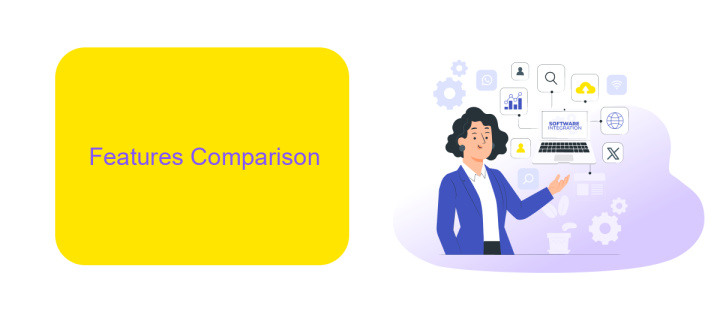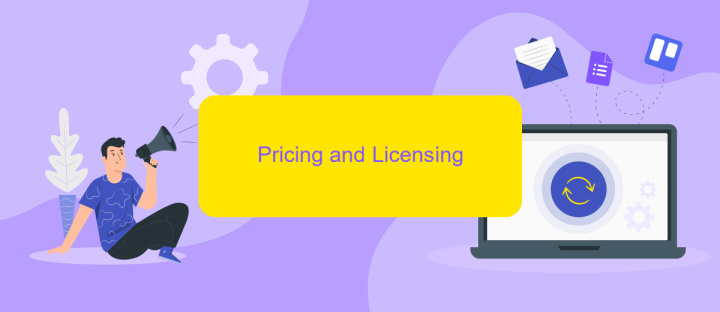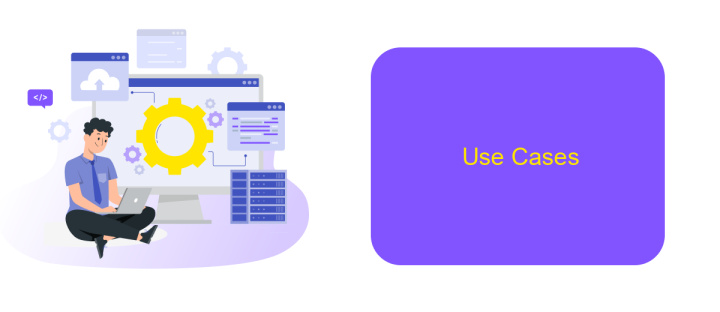Apigee Vs Endpoints
Choosing the right API management solution is crucial for modern businesses aiming to streamline their digital operations. In this article, we compare two leading platforms: Apigee and Google Cloud Endpoints. We'll explore their features, strengths, and ideal use cases to help you make an informed decision on which solution best fits your organization's needs.
Introduction
In the rapidly evolving world of API management, choosing the right platform can significantly impact your business operations. Apigee and Google Cloud Endpoints are two prominent solutions that offer robust features for managing APIs. Understanding the distinctions between these platforms is crucial for making an informed decision that aligns with your organizational needs.
- Apigee: Known for its comprehensive API management capabilities, including analytics, security, and developer tools.
- Google Cloud Endpoints: Offers a streamlined, serverless approach to API management with tight integration into the Google Cloud ecosystem.
- ApiX-Drive: Facilitates seamless integration between various services, enhancing the efficiency of your workflows.
Both Apigee and Google Cloud Endpoints have their unique advantages and can cater to different use cases. Whether you need advanced analytics and security features or prefer a more integrated, serverless solution, understanding these differences will help you choose the right tool for your API management needs.
Features Comparison

Apigee and Google Cloud Endpoints both provide robust API management solutions, but they have distinct features that cater to different needs. Apigee excels in offering comprehensive analytics, developer portal customization, and advanced security policies. Its monetization capabilities and extensive support for API versioning make it a preferred choice for enterprises looking for a full-fledged API management suite. On the other hand, Google Cloud Endpoints is tightly integrated with Google Cloud services, making it ideal for developers already within the Google ecosystem. It offers simplified deployment and management through gRPC and OpenAPI specifications, which can be advantageous for microservices architectures.
When it comes to integration capabilities, Apigee provides a wide range of connectors and third-party integrations, whereas Google Cloud Endpoints focuses more on seamless integration with other Google Cloud services. For businesses looking to streamline their API integrations, services like ApiX-Drive can be a valuable addition. ApiX-Drive offers easy-to-use tools for connecting various applications and automating workflows, enhancing the capabilities of both Apigee and Google Cloud Endpoints. This can be particularly useful for small to medium-sized businesses that need efficient and cost-effective integration solutions.
Pricing and Licensing

When comparing Apigee and Endpoints, pricing and licensing are critical factors to consider. Both platforms offer flexible pricing models, but they differ in their structures and offerings. Apigee typically operates on a subscription-based model, providing various tiers based on the number of API calls, features, and support levels. Google Cloud Endpoints, on the other hand, follows a pay-as-you-go approach, charging based on the actual usage of API calls.
- Apigee: Subscription-based pricing with multiple tiers.
- Endpoints: Pay-as-you-go pricing based on API call usage.
Additionally, both Apigee and Endpoints offer enterprise-level licensing options for large-scale operations. For businesses looking to streamline their API integrations, services like ApiX-Drive can be invaluable. ApiX-Drive simplifies the integration process, allowing for seamless connections between various applications, which can be a significant advantage when managing multiple APIs through either Apigee or Endpoints.
Use Cases

When deciding between Apigee and Endpoints, it's essential to consider the specific use cases where each platform excels. Both services offer robust API management solutions, but their strengths cater to different needs.
Apigee is ideal for large enterprises requiring advanced analytics, extensive security features, and comprehensive API lifecycle management. It supports complex API ecosystems and provides tools for monitoring, monetization, and developer engagement.
- Large-scale API management with advanced analytics
- Comprehensive security and compliance features
- Extensive developer portal and engagement tools
- API monetization and traffic management
Endpoints, on the other hand, is better suited for smaller teams or projects needing a straightforward, cost-effective solution with seamless integration into Google Cloud services. It offers essential API management features without the overhead of a more complex platform. For those looking to streamline their integration processes, services like ApiX-Drive can further simplify connecting various applications and automating workflows.
Conclusion
In conclusion, both Apigee and Endpoints offer robust solutions for managing and deploying APIs, each with its own strengths. Apigee excels in providing comprehensive API management features, including advanced analytics, security, and monetization options, making it ideal for large enterprises with complex needs. On the other hand, Endpoints is more streamlined and integrates seamlessly with Google Cloud, offering simplicity and efficiency for developers who prefer a more straightforward approach.
Ultimately, the choice between Apigee and Endpoints depends on your specific requirements and infrastructure. For businesses looking to enhance their API integration capabilities further, services like ApiX-Drive can be an invaluable asset. ApiX-Drive simplifies the process of connecting various applications and automating workflows, ensuring smooth and efficient integrations. By carefully evaluating your needs and leveraging the right tools, you can optimize your API strategy for maximum performance and scalability.
- Automate the work of an online store or landing
- Empower through integration
- Don't spend money on programmers and integrators
- Save time by automating routine tasks
FAQ
What are the primary differences between Apigee and Endpoints?
Which platform is better for large-scale enterprises?
Can both Apigee and Endpoints be integrated with automation services?
How do the pricing models of Apigee and Endpoints compare?
Which platform provides better security features?
Routine tasks take a lot of time from employees? Do they burn out, do not have enough working day for the main duties and important things? Do you understand that the only way out of this situation in modern realities is automation? Try Apix-Drive for free and make sure that the online connector in 5 minutes of setting up integration will remove a significant part of the routine from your life and free up time for you and your employees.


